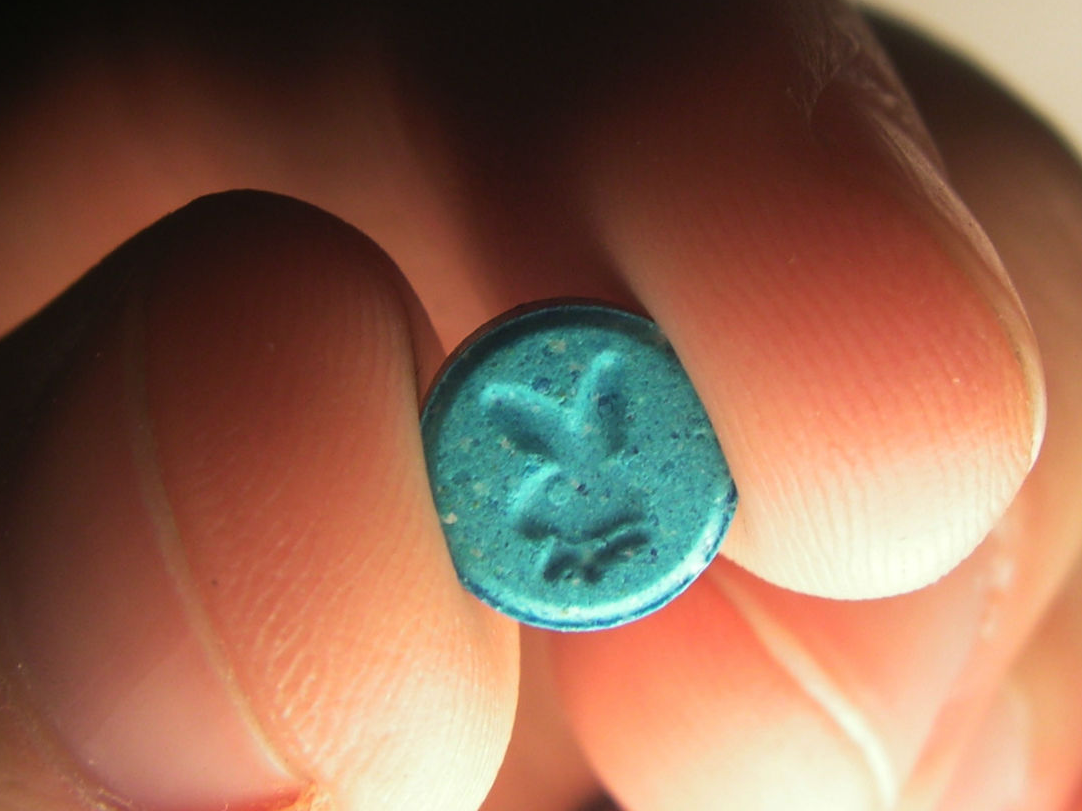- MDMA could be used as a treatment for PTSD, according to a new study.
- Most of all 26 participants had few or no PTSD symptoms a year after taking MDMA with therapy sessions.
- The response to the results has been mixed, and some researchers are skeptical.
- Another larger clinical trial will take place in the summer.
- Researchers are hopeful that if the trial is successful, MDMA could be FDA approved by 2021.
The idea of using recreational drugs to treat health problems is picking up pace. Recent research has shown how psychedelic drugs like LSD and magic mushrooms can be used to treat depressive symptoms, marijuana can treat pain and seizures, and even highly hallucinogenic drugs like DMT could have therapeutic benefits in the future.
According to a new study, 3,4-methylenedioxymethamphetamine – known as MDMA – could be given to people who suffer with post traumatic stress disorder (PTSD) to relieve their symptoms.
MDMA is the most common ingredient in ecstasy pills, and can also be taken on its own. An MDMA high tends to give people a buzz that makes them feel things more intensely, see sounds and colours more vividly, and feel affection for people around them. It was made illegal in 1977 in the UK, and 1985 in the US.
The new study, published in the journal The Lancet Psychiatry, found that MDMA affects certain brain chemicals to help people become more engaged in their PTSD therapy.
PTSD can affect people who have been through trauma from a distressing, dangerous, or shocking event. People with PTSD often experience flashbacks and nightmares, making their every day life difficult. Many people lose their jobs or turn to drugs or alcohol to relieve themselves from their thoughts.
Currently, the most common treatments for PTSD are cognitive processing therapy or antidepressants. But many people do not respond to currently available treatments, or drop out, the authors said in the study, so the need for new, more effective treatments is clear.
The researchers, who were funded by The Multidisciplinary Association for Psychedelic Studies, recruited 26 people, 19 men and seven women, who had been suffering from PTSD for at least six months. They included 22 army veterans, three firefighters, and one police officer.
They were randomly assigned to take oral doses of MDMA of either 30, 75, or 125 milligrams for two psychotherapy sessions. Neither the participants or the therapists knew what dose of the drug they had taken.
One month later, patients in the higher-dose groups showed significantly more improvement than those who took 30 milligrams, which was believed to be too low to experience much psychoactive effect.
In fact, 68% of the patients in the two higher-dose groups were no longer diagnosed with PTSD, compared to just 29% of the lowest-dose group. After a year, 67% of all 26 participants no longer qualified for a PTSD diagnosis. Those who did still experienced a reduction in their symptoms.
Participants reported some side effects, such as headache, fatigue, and muscle tension. A week after the study, some also experienced insomnia. But major side effects -increase in suicidal thoughts, major depression, and appendicitis - were not attributed to the MDMA itself, so the researchers concluded the treatment was safe.
Although the results look promising, it's important to remember the limitations of the study. For example, it's very small, and a larger study would be needed to clarify the long term effects of the drug. Also, there was no placebo, and some of the participants could have continued to take MDMA after the study finished.
Neil Greenberg, a professor of defence mental health at King's College London, told CNN that the results do not "fundamentally change" the current services offered for PTSD, and most of the participants were recruited from the internet so "one has to assume they were interested in taking a psychedelic drug."
David Nutt, a British neuropsychopharmacologist, saw the results differently. Nutt was the drug adviser for the government until he stated in a research paper in 2009 that alcohol and tobacco were more harmful than many illegal drugs, such as ecstasy, and was sacked. Since then, his research has focused on using MDMA to treat alcoholism following trauma.
"It could revolutionise the treatment of PTSD, for which there has been almost no progress in the past 20 years," he told The Guardian.
Michael C. Mithoefer, lead author of the study and a psychiatrist in the department of psychiatry and behavioral sciences at the Medical University of South Carolina, said the next phase of clinical trials will begin in the summer, which will be larger, involving 200 to 300 participants in the US, Canada, and Israel.
If the results find MDMA to be a safe and effective treatment for PTSD, he expects FDA approval by 2021 - but only with use in combination with therapy sessions and not as a "daily drug."
"If it is approved by FDA for clinical use, it will likely be restricted to specialised clinics with properly trained therapists, not as a take-home medicine that people get from the pharmacy," he said.

